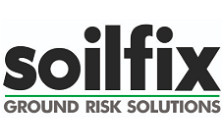
When Environment Analyst last interviewed Soilfix MD, George Evans in July 2020 at the height of a national lockdown, he was surprisingly upbeat about the firm’s prospects (EA 02-Jul-20). Soilfix, which he had founded in 2004, had retained its 30 full-time staff, with only three employees furloughed.
The company had a healthy order book – for example, cleaning up contamination from a former pharmaceutical company in Dagenham and preparing the ground for the Wirral Waters regeneration scheme in north-west England. During the year ending 31 December 2020 Soilfix’s revenue grew despite the lockdown challenges by 6.7% to £8.1m.
With offices in Bristol and Rayleigh in Essex, Soilfix offers services in soil and groundwater remediation as well as carrying out site decontamination, demolition and enabling works. Its main activity is preparing land for redevelopment, for residential or commercial and industrial use. At any time the company aims to have four or five sites running, recruiting staff and hiring in plant as necessary.
There has been consolidation in the UK brownfield remediation sector in the last decade. RSK acquired RemedX in 2012 and Raw and Ecologia in 2019 (EA 03-Jul-19; RSK 16-Sep-19). Vertase FLI, part of an Irish-owned group and UK-headquartered civil engineering multinational, Keltbray, are also powerful presences in the sector. Jackson Remediation was a notable start-up last year, from former directors of Keltbray’s demolition arm (EA 23-Feb-21).
Life after lockdown
With the UK’s levelling up agenda continuing to focus on brownfield land for new housing, the growing change of use of previous office and retail sites and large-scale infrastructure development ongoing, there is clearly space in the brownfield remediation market for SMEs like Soilfix to grow into.
Two years after the height of the COVID-19 pandemic, Evans tells Environment Analyst that the company has added six to its payroll and now has 36 full-time equivalents.
Soilfix’s business focus remains similar to that before COVID-19 – approximately a third of its work is preparing land for housing associations, a third for private developers and a third for industrial and commercial clients. The housing association schemes tend to be inner-city and high density. Private developers are building housing schemes.
"We’ve been working quite hard on our company structure, so that we can grow to the next level," says George Evans. "We are trying to grow our market share, year-on-year. We are currently in the £8-9m turnover range. Our three-year plan in 2020 was to get to get to £12m by 2024."
The lockdown practice of using video calls for everyday business has continued. Evans says: "We have maintained more flexible working, with more people working at home. We are much better connected now, having meetings every day on-line. That’s probably the biggest change since lockdown. We use office-to-site communication all the time."
Post-COVID, the company has introduced a carbon calculator analysis for clients, developed by Delta Simons, which works out the carbon impacts of site remediation practices. This approach favours using recycled aggregates and soils to create building platforms. Evans says: "It’s cheaper to recycle materials but it does take a bit longer, which can be a factor when timescales are tight."
He adds: "We are now seeing circular economy objectives being introduced into planning requirements for large regeneration schemes, for example in Greater London. This is positive for Soilfix because of our experience of sustainable materials management."
Business challenges
He predicts that plenty of brownfield sites will be released for development for the foreseeable future across the UK. However, some new issues are emerging.
"We have a healthy order pipeline but there are definitely some blockages," says Evans. "As we came out of COVID, there was an increase in orders and opportunities but what we are seeing now is headwinds caused by the Ukraine crisis and inflation. Construction-led projects are stalling because of price increases in materials like concrete, steel and timber. We are the first people on site but our clients will only start the project when all of the costs have been firmed up. At the moment, it is really hard to tie them down."
Another business constraint is the continuing complexity of the UK planning system. Evans says: "One of the problems is that development has become too complicated. The planning process is very difficult. There are a lot of rules and regulations around building that smaller companies seem to struggle with."
The issue here, he argues, is simplifying development-related planning to diversify supply without jeopardising environmental outcomes or human health. Another problem is that regulators working for the Environment Agency and its UK equivalents and contaminated land officers in local government are facing serious shortfalls in staffing.
He says; "We are seeing blockages because of that. It’s taking so long to get permits at the moment that it’s slowing down project starts."
In view of these constraints, Soilfix is looking to diversify, he says, into areas like road and rail infrastructure and energy. Happily, the UK has no shortage of brownfield land which it will need to re-purpose for a variety of reasons in the coming decades.
Steady growth is Soilfix’s watchword – it has no desire to aggressively pursue expansion. The company has a stable, long-term group of directors.
"We are a privately-owned business. In five to ten years time, we will be looking at a succession plan which will explore options like employee ownership or management buyout," says Evans. "It will depend on the management team at the time."
Environment Analyst is proud to have Soilfix as a Premium Partner of its Brownfield & Regeneration Network. To find out more about Soilfix and explore their resource library you can visit their profile page. To learn more about Premium Partnership, and how you could get involved, please click here.
